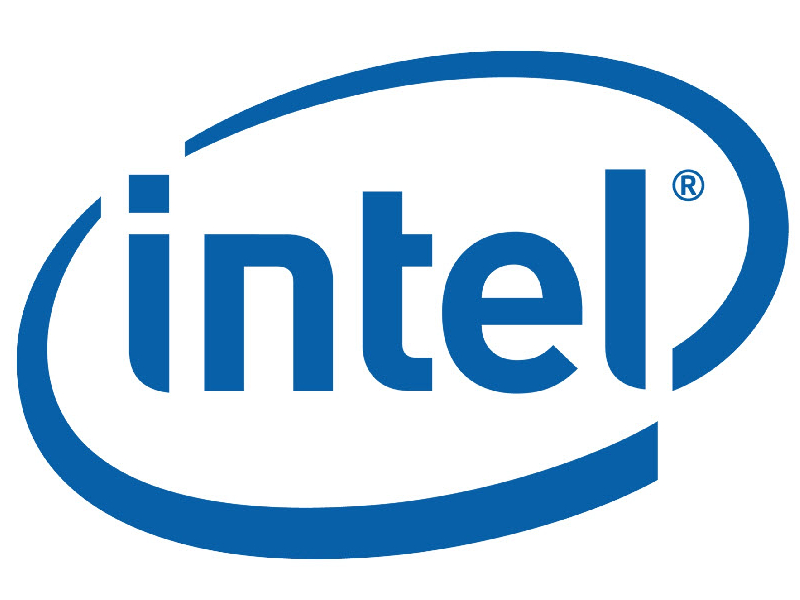Intel May Purchase Stake in Sharp for IGZO Laptop Displays
Intel may buy a stake in Sharp to use the company's IGZO displays in Ultrabooks.
Unnamed sources are claiming that Sharp is currently striking a business alliance with Intel to provide LCD panels for Ultrabooks.
Sharp, which is currently in the middle of ironing out a restructuring plan to secure financial support from lenders, is reportedly asking for more than 30 billion yen ($383 million) from the chip giant. There's also a possibility that Intel may actually acquire a stake in the display manufacturer some time in the near future.
Upon the news of a possible deal with Intel, shares of Sharp rose 5-percent to 212 yen of Friday. Prior to the Intel news, the company was in talks to sell a 9.9-percent stake to fellow Apple supplier Hon Hai Precision Industry Co. However insiders claim the negotiations were put on hold while the latter company sought out a say in Sharp's management in return for the investment.
Sharp is slated to complete its revival plan within the next few days to present to banks. The company currently has up to 360 billion yen of short-term commercial loans to repay, making Sharp somewhat desperate for immediate cash. Right now the company is relying on banks Mizuho Financial Group and Mitsubishi UFJ Financial Group for funding.
But once the revival plan is presented, the banks will then decide if they will provide about 200 billion yen in additional loans, sources claim. This plan includes the sale of its U.S. solar power unit Recurrent Energy which was purchased back in 2010.
With its TV sales on the decline, Sharp is now focusing on its smaller displays to make up for the revenue loss. Sources claim that instead of securing itself even deeper within Apple's supply chain, the company sees the next-generation wave of Ultrabooks to be the perfect market for its most advanced displays, including the IGZO display.
And the infatuation isn't just a one-way street either: Intel has its eyes on Sharp as well, attracted to the company's small and midsized LCD panels. The super high-definition IGZO display will be ideal for the Ultrabook form factor, as it consumes less power than conventional LCDs, it's thinner and requires less backlighting. Even more, it has a highly-sensitive touchscreen, perfect for Windows 8, according to Sharp's chief financial officer, Tetsuo Onishi.
Get Tom's Hardware's best news and in-depth reviews, straight to your inbox.
So far Sharp has not released an official statement. Reuters said an Intel spokesman declined to comment on the report.

Kevin Parrish has over a decade of experience as a writer, editor, and product tester. His work focused on computer hardware, networking equipment, smartphones, tablets, gaming consoles, and other internet-connected devices. His work has appeared in Tom's Hardware, Tom's Guide, Maximum PC, Digital Trends, Android Authority, How-To Geek, Lifewire, and others.
-
A Bad Day Ah, I was thinking about purchasing some shares in Sharp, then decided against it, then this...Reply -
master_chen IGZO displays are awesome, I really hope that Intel gets those into Ultrabooks in the near future.Reply -
freggo adgjlsfhkIntel should just wait for their value to decrease an just buy them.Reply
... but if you wait too long your chance may be gone !
-
aznshinobi IGZO's pretty amazing but Samsung's Flexible AMOLED should be of interest too for the Ultrabook form factor IMO.Reply -
vkg1 This is basically equivalent to the crap that Crapple is using in all their "Retina" junk, no? The whole idea is this ridiculously excessive resolution, no? Why is Intel so obsessed with making Crapbook Air clones? *just waiting for ARM to start making laptop processors*Reply -
jkflipflop98 vkg1This is basically equivalent to the crap that Crapple is using in all their "Retina" junk, no? The whole idea is this ridiculously excessive resolution, no? Why is Intel so obsessed with making Crapbook Air clones? *just waiting for ARM to start making laptop processors*Reply
Yes, because somehow higher-resolution displays are a bad thing.
-
deksman Higher resolutions are hardly a bad thing.Reply
The problem is in lousy/inefficient ('cheap and cost effective') materials being used to create them which limits their efficiency, capabilities, etc. (this practice is prominent throughout the capitalist industry sadly regardless of the premise we can create superior synthetic materials in abundance for decades that allow us to make technology light years ahead of what is currently in use). -
jkflipflop98 deksmanHigher resolutions are hardly a bad thing. The problem is in lousy/inefficient ('cheap and cost effective') materials being used to create them which limits their efficiency, capabilities, etc. (this practice is prominent throughout the capitalist industry sadly regardless of the premise we can create superior synthetic materials in abundance for decades that allow us to make technology light years ahead of what is currently in use).Reply
You seriously need to seek mental assistance. There is no industry wide conspiracy to use anything sub-par. If there really was some "superior synthetic material" that we've been able to "produce in abundance for decades" that enabled "technology light years ahead of what we currently use", then that is what we'd be using.
So please, enlighten us, what are some of these materials? And what makes them better than the display in the article?
